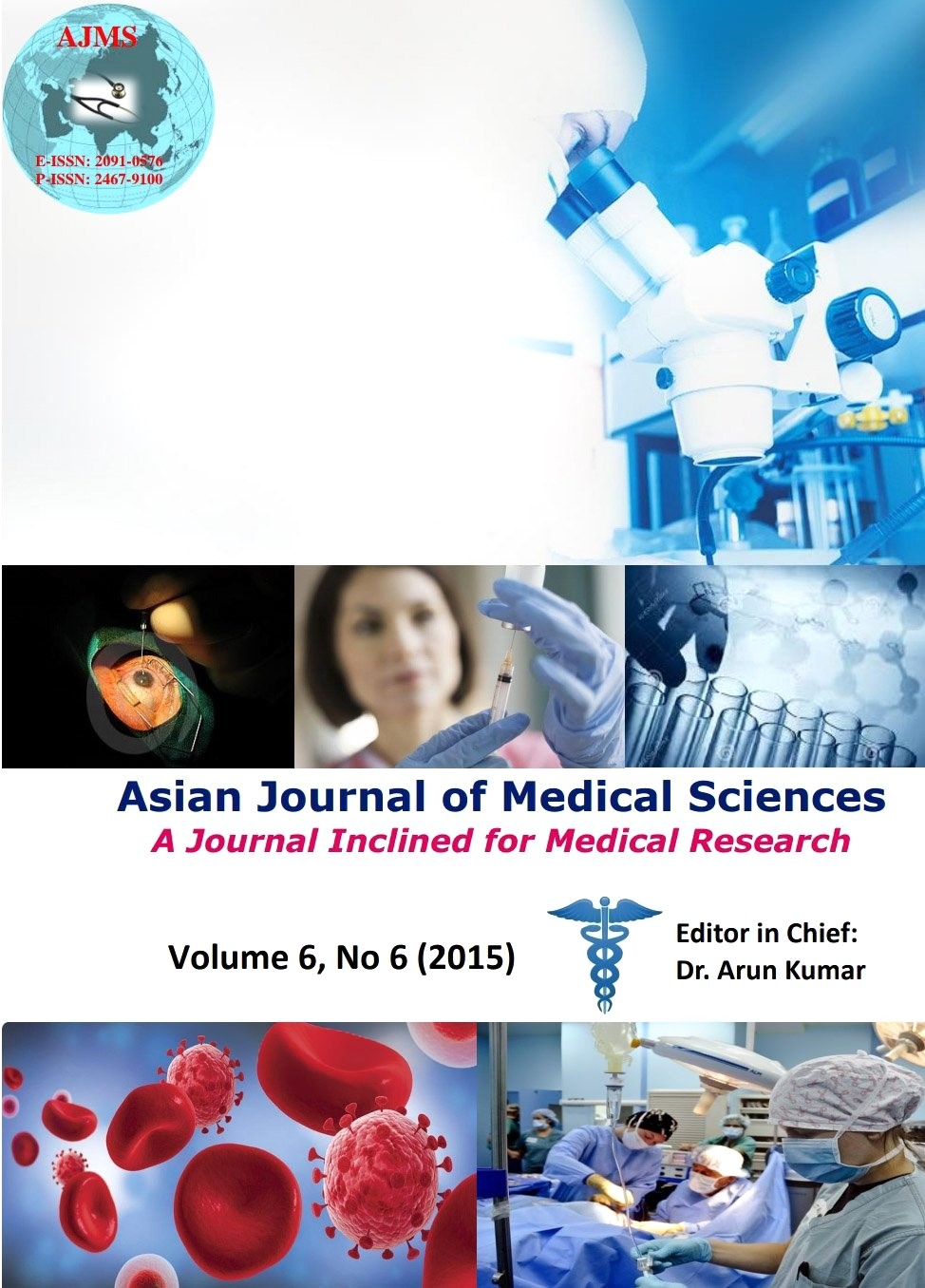Enhanced Plasma H2S Levels Associated With Fasting Blood Glucose In Type-2 Diabetes Mellitus
Keywords:
Type 2 Diabetes Mellitus, Plasma H2S levels, Kolkata.Abstract
Introduction: A number of recent literatures suggest a potential role of H2S and H2S modifying agents in the etiology and management of type-2 diabetes mellitus.
Objective: The current study was aimed to evaluate the plasma levels of H2S in the patients with type 2 Diabetes mellitus and to find out if there is any relationship of H2S concentrations with the fasting blood glucose levels.
Methods: Plasma H2S levels were measured in sixty two recently diagnosed type 2 diabetic patients and compared with similar number of healthy volunteers as controls.
Results: The plasma H2S level in the patients ( 81.17 ± 16.40 micromol/l ) is significantly higher (P< 0.001) than the healthy controls (50.69 ± 8.69 micromol/l) and the H2S levels in plasma have significant positive correlation (r= 0.359, P=0.004) with fasting blood glucose levels.
Conclusion: The present study has elucidated that the patients with type-2 diabetes mellitus are associated with elevated plasma H2S levels which are well correlated with glucose levels. This reveals a potential the role of H2S modulators towards the management of this non-communicable epidemic disorder.
DOI: http://dx.doi.org/10.3126/ajms.v6i6.12532
Asian Journal of Medical Sciences Vol.6(6) 2015 11-15
Downloads
Downloads
Published
How to Cite
Issue
Section
License
Authors who publish with this journal agree to the following terms:
- The journal holds copyright and publishes the work under a Creative Commons CC-BY-NC license that permits use, distribution and reprduction in any medium, provided the original work is properly cited and is not used for commercial purposes. The journal should be recognised as the original publisher of this work.
- Authors are able to enter into separate, additional contractual arrangements for the non-exclusive distribution of the journal's published version of the work (e.g., post it to an institutional repository or publish it in a book), with an acknowledgement of its initial publication in this journal.
- Authors are permitted and encouraged to post their work online (e.g., in institutional repositories or on their website) prior to and during the submission process, as it can lead to productive exchanges, as well as earlier and greater citation of published work (See The Effect of Open Access).




